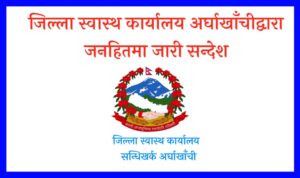The United Nations Security Council has approved new sanctions on North Korea in response to its latest nuclear test.
The 15-member council voted unanimously Thursday on a resolution approving the sanctions. They are the product of weeks of negotiations between the United States and North Korea’s closest ally, China, following Pyongyang’s nuclear test last month.
Ahead of the vote, North Korea threatened a preemptive nuclear strike on the United States. The country’s foreign ministry on Thursday said the country would exercise its “right to pre-emptive nuclear attack against the headquarters of the aggressor” and said the “United States is about to ignite a nuclear war.”
The new sanctions block any financial services or money transfers that could help Pyongyang’s nuclear and missile programs, while tightening travel bans and adding new names to a blacklist of companies with links to North Korea’s military. They also strengthen cargo inspections into and out of North Korea and ban certain luxury items from being shipped to the country.
Shortly after the vote, U.S. Ambassador to the United Nations Susan Rice told reporters that “taken together, these sanctions will bite and bite hard.”
Korea analyst Malcolm Cook said the latest Security Council resolution further narrows North Korea’s ability to get around existing sanctions targeting its nuclear and missile programs.
“The sanctions are becoming much more targeted and not just focusing on general forms of transactions, but [focus on] individuals and companies, which shows a greater level of cooperation between those that negotiated them,” said Cook.
North Korea has made recent strides in its nuclear and missile programs.
North Korea also has threatened to void the 1953 armistice that ended the Korean war and announced a series of military exercises to compete with drills being held by the U.S. and South Korea. Reports say Pyongyang has been taking steps to camouflage public transport and broadcast messages from citizens in favor of war.
The South has vowed swift retaliation in the event of any North Korean military action. Defense ministry spokesperson Kim Min-seok says Seoul is closely monitoring the border.
“The North is currently conducting various drills on land, sea, and air,” the spokesperson said. “We are watching the North’s activities and stepping up readiness under the assumption that these drills can lead to provocation at any time.”
The commander of U.S. Forces in South Korea, General James Thurman, also released a statement saying he was concerned about Pyongyang’s threat




